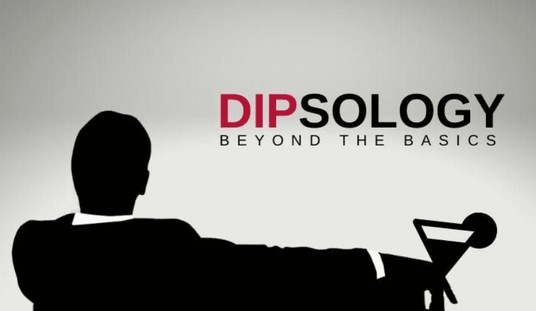We've long known that left-wing university professors are far more interested in indoctrinating students in the ways of radical leftism than in educating students in areas such as critical thinking, objective analysis, and reasoning skills.
In the late '60s and early '70s, liberalism began to grow on college campuses across America as opposition to the Vietnam War dramatically increased, the civil rights era exploded, and affirmative action was born.
By the mid-90s and continuing to its lurch to the left — with many radicalized former students now professors — higher education became dominated by radicalized thought, while conservatism was forced to take a back seat.
Thus began the indoctrination of many of the leftists who plague our country today.
However — and this is profound — a new study has found that a growing percentage of college students no longer feel free — or safe — to openly and honestly express their viewpoints in class or anywhere on campus, with roughly 90 percent of such students misrepresenting (hiding) their views to mollify faculty by adopting (or pretending to adopt) more left-wing views.
In other words, we now have college students pretending to be left-wingers to avoid being chastised or penalized because of their real views and/or values.
In a recent op-ed, titled "Performative Virtue-Signaling Has Become a Threat to Higher Ed," Northwestern University researchers Forest Romm and Kevin Waldman described their findings:
On today’s college campuses, students are not maturing — they’re managing. Beneath a facade of progressive slogans and institutional virtue-signaling lies a quiet psychological crisis, driven by the demands of ideological conformity.
Between 2023 and 2025, we conducted 1,452 confidential interviews with undergraduates at Northwestern University and the University of Michigan. We were not studying politics — we were studying development. Our question was clinical, not political: “What happens to identity formation when belief is replaced by adherence to orthodoxy?”
[...]
We asked: Have you ever pretended to hold more progressive views than you truly endorse to succeed socially or academically? An astounding 88 percent said yes.
These students were not cynical, but adaptive. In a campus environment where grades, leadership, and peer belonging often hinge on fluency in performative morality, young adults quickly learn to rehearse what is safe.
"The result is not conviction but compliance," the researchers wrote, before making this stark point: "And beneath that compliance, something vital is lost."
Something vital, indeed.
As author and political commentator Jonathan Turley put it, in a Sunday column:
This has been a long-standing problem in higher education. The current generation of faculty and administrators has destroyed the sense of free thought and expression on our campuses. Faced with consistent polling showing that students feel compelled to mimic liberal ideology and viewpoints, faculty shrug or even attack students for being weak.
The virtual purging of conservative faculty members across the country sends a message to students that such ideas are not favored or acceptable. The result is that the vast majority of students — liberal and conservative — self-censor in an environment of intolerance.
Is it any wonder? Yet tolerance of intolerance can ultimately be more foreboding than intolerance itself, as history has shown us innumerable times.
The researchers explained:
Authenticity, once considered a psychological good, has become a social liability. And this fragmentation doesn’t end at the classroom door. Seventy-three percent of students reported mistrust in conversations about these values with close friends.
Nearly half said they routinely conceal beliefs in intimate relationships for fear of ideological fallout. This is not simply peer pressure — it is identity regulation at scale, and it is being institutionalized.
Universities often justify these dynamics in the name of inclusion. But inclusion that demands dishonesty is not ensuring psychological safety — it is sanctioning self-abandonment. In attempting to engineer moral unity, higher education has mistaken consensus for growth and compliance for care.
Excellent point. In the twisted minds of the left, "inclusion" is really about compliance.
More on 'Something Vital Is Lost'
Critical thinking. Objectivity — regardless of political leanings or predisposition. Understanding.
All of the above and more are certainly vital to education. However, from the news sources we follow, to the political pundits we watch or read, to our posts and comments on social media, we have largely become a nation afflicted by tribalism. As a result, many if not most of us are far more interested in telling the other guy (political party) why he or she is wrong and we are right — or in being told by pundits what we already believe — than in genuinely listening to opposing thoughts and ideas.
This not only happens between political parties; it also happens within political parties, but that's another subject for another article.
ALSO CHECK OUT: Blue-State University Finds Out Trump’s Not Playing; Tolerance of Antisemitism Will Cost Them Dearly
'Free Speech' College Style: Student Investigated for Support of Israel, Views on 'Trans' Athletes
As for the study, Turley summed up "what happens now" perfectly:
This report will now be added to a tall stack of other reports showing a culture of intolerance and intimidation in higher education, particularly for more conservative students. It also reflects why the last election shocked so many in the media and establishment, as young people voted Republican.
Meanwhile, as the no-longer-hallowed halls of academia continue to spew leftist garbage and the cesspool of social media continues to wallow in tribalism, is hope for a better tomorrow within reach?
I believe so. What say you?














